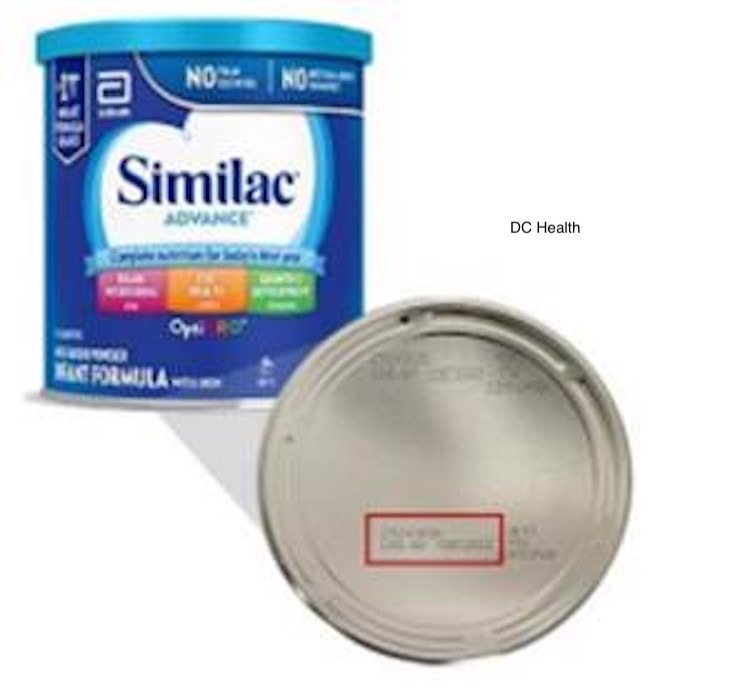More information about the Similac Alimentum EleCare formula recall has been provided by DC Health, including lookup information for parents that the FDA has also supplied. The formula is associated with three Cronobacter illnesses and one Salmonella illness in infants who live in Minnesota, Texas, and Ohio. All four babies were hospitalized, and one infant died: the FDA states that “Cronobacter may have contributed to a death in one case.”

The more detailed information in the DC Health release is that parents should not use “Similac Advance, Similac Sensitive, Similac Total Comfort, Similac for Spit Up, Alimentum, EleCare Infant, and EleCare Jr. powdered formula,” as long as the first two digits of the code are 22 through 37, the code on the container contains K8, SH, or Z2, and the expiration date is 4-1-2022 or later. The code is printed on the product package near the expiration date. If the formula does not include all three of these numbers or dates, it is not affected by the recall.
Check Similac Alimentum EleCare Formula Lot Numbers
You can check if the lot number of the Similac Alimentum EleCare formula product you may have is included in this recall by going to the Similac Recall page and entering the first seven characters of that lot number in the space provided. If you do have one of these cans, do not feed the formula to your infant. You can see a list of alternative formulas at the DC Health web page. Learn more about preparing powdered infant formula and Cronobacter here.
You can return the unused cans of the recalled formula to the store where you bought it, or discard it in a secure trash can. DC Health is alerting local WIC providers and WIC families about the recall. WIC families are encouraged to call their clinic if they cannot get resolution from the store.
Symptoms of Cronobacter and Salmonella
If your infant has consumed the recalled formula and has been ill with these symptoms, contact your doctor immediately. Symptoms of sepsis and meningitis that can be caused by Cronobacter include poor feeding, irritability, temperature changes, jaundice (yellow skin and whites of the eyes), grunting breaths, and abnormal movements. Symptoms of Salmonella food poisoning can include diarrhea, vomiting, fever, and abdominal cramps. More severe cases of salmonellosis may include a high fever, aches, headaches, lethargy, a rash, and blood in the urine or stool.

If your infant has been sickened with a Cronobacter or Salmonella infection after consuming recalled infant formula, please contact our experienced attorneys for help at 1-888-377-8900 or text us at 612-261-0856. Our firm represents clients in lawsuits against grocery stores and food processors, and families in wrongful death cases.




